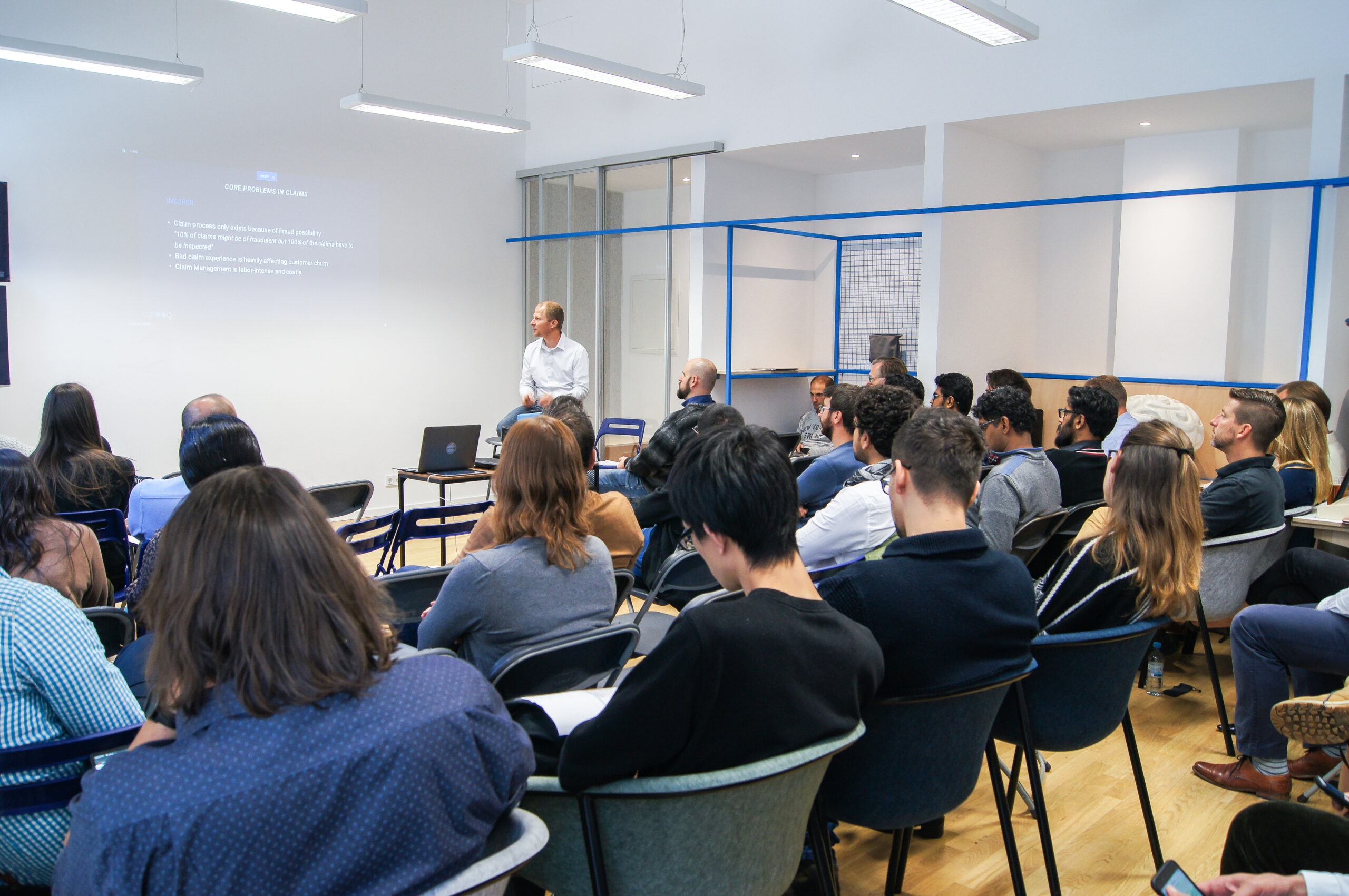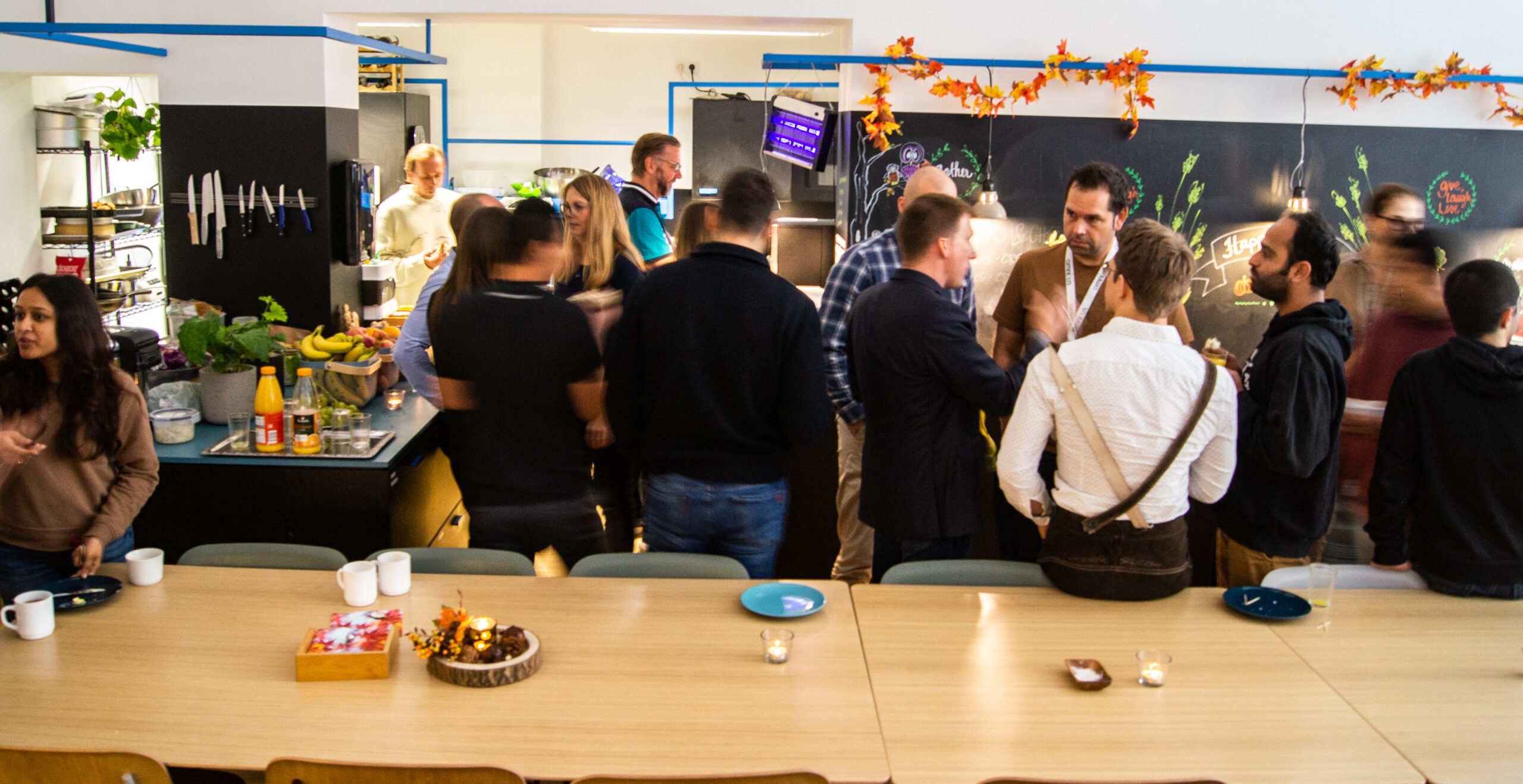Last week omni:us held a 1-day workshop about our favourite industry. And it’s safe to say that the first edition of “Insurance Day” was a hit!
We welcomed a host of excellent speakers to our Berlin base, both external and internal, all of whom brought a different and fresh perspective on the insurance space. The agenda saw presentations from carrier c-levels to claims innovation directors, from hyper-focused home insurance solutions to the analytical outlook of major consultancies.
Insurance is a mature and dense industry. The workshop was one way to crack the nut of knowledge for our wider team, who are often working on a specific task without “the bigger picture” in mind. Our chosen industry is a maze of regulation, terminology, risk models and mathematics. Insurance demands that we educate ourselves and stay abreast of its ongoing developments.

Check out our 5 takeaways from the Insurance Day…
1. “People don’t want to deal with their insurance. Period.”
This was one of the bold opening statements we heard from an executive, and it rang true. The fact is, we are trying to break down barriers between insurers and insured, likely in a vulnerable state and interacting with their insurance strictly out of necessity. While we are championing a re-imagined customer journey, sometimes we are distracted by flashy offerings in other, less pressured environments, where the customer is acting out of desire, not need. Amazonification, after all, is a term now. As our speaker said: “Customer-centricity taken from other industries can fool you”. Something to consider when we think of empathy in insurance.
2. The current state of Big Insurance
We were fortunate to be joined by some claims transformation directors from Europe and North America.
One outlined a classic legacy insurer. To get the idea:
- Some companies have open policies dating back to over a hundred years ago.
- Older insurance companies maintained separate claims departments, usually regional, i.e. one per county or state.
- They’ve begun to centralize to increase efficiency, but it’s proving a slow effort.
- Backend systems can date as far back as the ‘80s.
- Despite these difficulties, all of them aim to have an NPS (Net Promoter Score) increase over the coming years.
- Claims work is shared between sales agents, dedicated inhouse adjusters, and offshore service teams.
Another director outlined a rather shocking blueprint for claims handling.
- Policyholder discovers water leak, estimates cost at EUR 1.800
- Submit claim to sales rep/agent who sold them the policy
- He enters claim into system
- He can only adjust below EUR 1.000
- Sends it to offshore service team
- They look at the claim, order an assessor to gather more info
- The assessor visits site
- Assessor sends assessment to sales rep who is still owner of claim due to entering it first
- Assessment is now EUR 3.500
- He sends it to offshore team
- They are only able to pay out < EUR 2.500
- They send it to Insurance HQ
- It gets settled by inhouse adjusters

3. Referees on the collective:
One insurance boss reminded us of the insurer’s fundamental role as “referees on the collective.” Eloquently put: maybe he has a future as a poet as well! Something that escapes us often is that insurance is dependent on the collective dynamic. There needs to be a large number of similar risks so that the likelihood of a claim can be spread among other policyholders. It must be possible for insurers to calculate the chance of loss so that a premium can be set which matches the risk.
As Robert G. Evans wrote in 1987:
Health insurance does not insure health. It reimburses the costs of health care, and enables potential users of care to pool their risks.
The power of statistics: individually, they remain uninteresting. But extremely powerful for the collective.

4. Analysis, or lack thereof
The CEO of an anomaly detection service for water and fire damage, told us that only around 0.8% of data is analysed by insurance companies. With such low levels of data analysis, damage prevention, consumption predictions and maintenance scheduling is less efficient than it should be.
5. Speed is the key
A consultant from one of the top firms, an insurance veteran of 10+ years, said something which was echoed throughout the day by the other speakers. Know as early as possible: That keeps the costs lower.
This seemed to cover claims on both a macro and micro level. Individual claims – the sooner they are run through the system and settled, the less expensive they are. “Fast money is good money. Fast money is a clean claim… the longer you let a customer think on a claim, the more polluted it gets.” Another speaker said that agility is key, and that “the earlier you realize what is happening in your claims, the quicker you can tackle a problem. And maybe my favourite quote of the whole event:
“Compute smartly. Do you want to crawl, or do you want to make your customers happy?”
How it all wrapped up – refreshed by a few big Bavarian beers. Fröhliches Oktoberfest!


